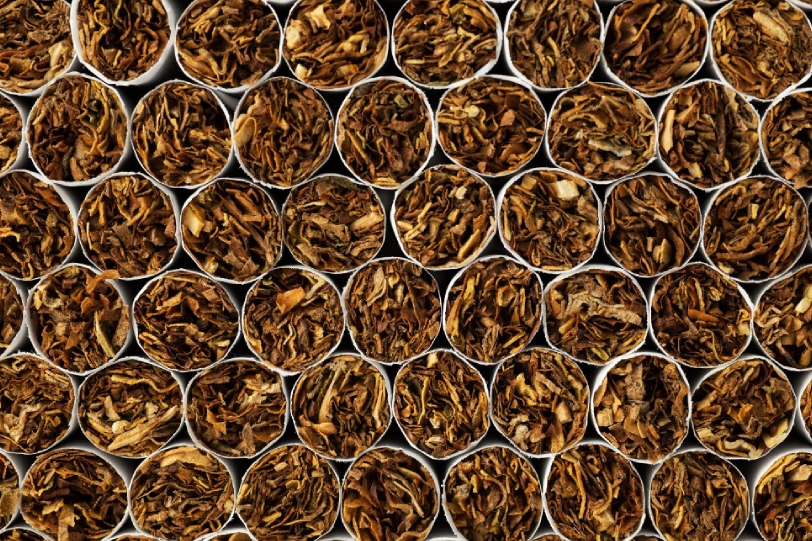
Tobacco is a leafy plant cultivated mainly for its leaves, which are processed into various products such as cigarettes, cigars, pipe tobacco, and chewing tobacco. The plant contains nicotine, a potent and highly addictive chemical that affects the central nervous system. Tobacco cultivation has a long history, dating back centuries, and remains an important economic crop in many regions, supporting farmers, manufacturers, and related industries. However, its use poses significant health risks, including lung cancer, cardiovascular disease, respiratory disorders, and other chronic conditions, making it one of the leading preventable causes of death worldwide. Beyond health concerns, tobacco production raises environmental issues, including deforestation, soil depletion, and pesticide use. These factors have led to widespread public health campaigns and regulatory measures aimed at reducing tobacco consumption, such as higher taxes, advertising restrictions, and the promotion of smoking cessation programs. The balance between its economic significance and public health impact continues to be a topic of global debate and policy focus.

Galvanizing involves coating steel or iron with a protective layer of zinc, typically by hot-dipping, to prevent corrosion.
Oilfields are sites where crude oil is extracted from underground reservoirs using drilling techniques.
Paint and ink are versatile liquid or paste substances used for artistic, decorative, and practical applications.
Animal feed and nutrition focus on providing balanced diets to livestock and pets for optimal health, growth, and productivity.
Water and Waste Treatment involves processes to purify water and manage waste to protect public health and the environment.
Cement and ceramics are essential materials in construction and manufacturing.
Plastics and rubbers are versatile materials widely used in various industries.
Personal and Home Care refers to products and services designed to enhance individual well-being and maintain cleanliness, hygiene, and comfort at home.
Paper and packaging encompass materials and products designed to protect, transport, and present goods.
The food industry encompasses all activities related to the production, processing, distribution, and sale of food products.
Tobacco is a leafy plant primarily grown for its leaves, which are processed and used in various products like cigarettes, cigars, and chewing tobacco.
The textile and leather industries focus on producing fabrics, garments, and leather goods.
Fertilizer is a substance added to soil or plants to supply essential nutrients that promote growth and improve crop yields.
Drilling mud chemicals are additives used in the drilling process to optimize performance, enhance safety, and protect the wellbore.
Copyright © 2024. All rights reserved.